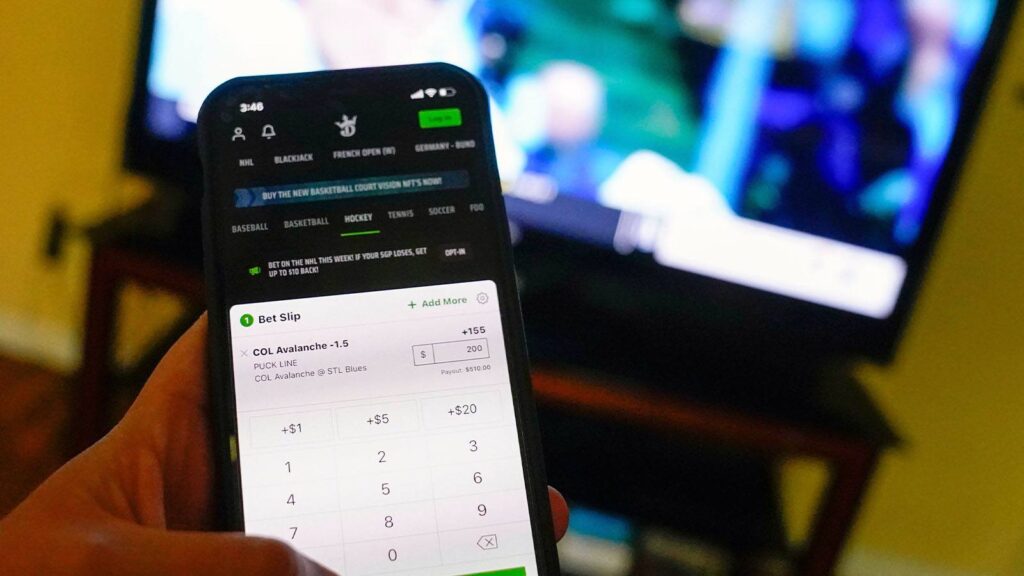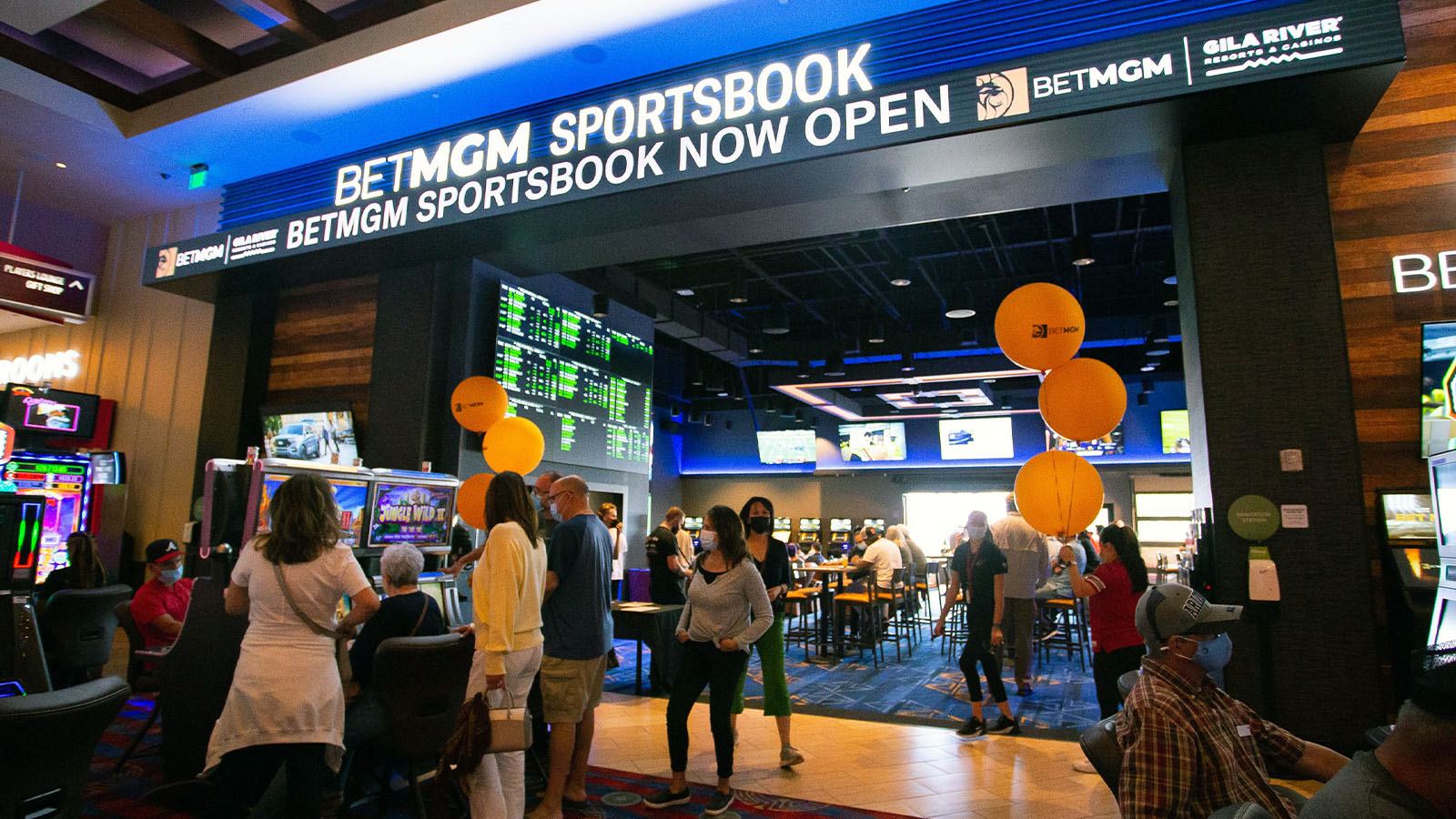PASPA Anniversary: What's Next For Legal Sports Betting In The U.S.? (Analysis)

The Supreme Court opened the door for legal sports betting to be legalized nationwide outside Nevada six years ago.
Sports and betting were forever changed by the decision.
The Court overturned the Professional and Amateur Sports Protection Act (PASPA) due to a case called “Murphy v. NCAA.” Its 7-2 decision came in the morning of May 14, 2018. Now, 38 states and the District of Columbia have launched legalized sports betting at the retail and/or mobile level.
Legal sports betting has grown into a $350 billion industry. Legal betting has generated more than $29 billion in net revenue for the nation’s legal sports books and $5.315 billion in state tax revenue.
We're looking at the sixth anniversary of PASPA being overturned in a series of stories.
Here, we look at the state of legal U.S. sports betting and where it's headed in the next 6 years.
RELATED: PASPA Anniversary: Top 10 Game-Changers In Sports
“The legal U.S. sports betting market has already seen remarkable growth post-PASPA, grossing more than $11 billion across 38 markets last year. And legal sports betting is delivering on its promises: bettors have safer wagering options, integrity safeguards are proving they work, and competition from legal operators is significantly shrinking the predatory illegal market – by nearly 60 percent according to AGA estimates,” AGA Senior VP Strategic Communications Joe Maloney told bookies.com.
Yet the two most populous states in America – Texas and California – have yet to come close to legalization. And the third-most populous state in the nation, Florida, is limited to just one legal operator.
RELATED: PASPA Anniversary: Q+A With Gaming Expert Bill Pascrell III
And despite all the pitfalls, industry and regulatory shortcomings, fears of societal collapse, and gut-wrenching individual stories of problem gambling, not a single jurisdiction has even proposed a repeal.
Government greed has been the single biggest propellant in the growth of legal sports betting. “Greed” may seem a bit harsh, but legal sports betting has grown first and foremost because of each jurisdiction’s need or desire for the tax revenue it creates.
The legal sports betting ecosystem in the United States is much like a fully-grown teenager who has yet to fully mature on the inside. Sports betting has grown so rapidly that both regulators and operators have been struggling to keep up with both the challenges and opportunities it presents.
Legal U.S. Sports Betting By The Numbers

Here is a look at the growth of legal sports betting since PASPA was overturned in 2018. Sports betting has been legal in Nevada since 1949. Its numbers are included here, as well. Each year is listed along with the total handle, sports betting operator revenue, state tax paid, and number of live, legal markets in the U.S. at the end of each year.
| YEAR | HANDLE | REVENUE | STATE TAX | MARKETS |
|---|---|---|---|---|
| 2018 | $6.6B | $441.1M | $56M | 8 |
| 2019 | $13.1B | $908.9M | $152M | 14 |
| 2020 | $21.6B | $1.6B | $294M | 20 |
| 2021 | $57.7B | $4.3B | $559M | 31 |
| 2022 | $93.2B | $7.5B | $1.5B | 32 |
| 2023 | $121.1B | $11.0B | $2.1B | 38 |
| TOTAL | $348.9B | $29.0B | $5.3B | 39 |
The totals listed are through March of 2024.
What Will Legal U.S. Sports Betting Look Like In 2030?

What will the next 6 years bring?
There are plenty of challenges ahead.
“The legal gaming industry has built the foundations of a strong, sustainable sports betting market. Our challenge is to continue this progress. That means doubling down on responsibility efforts across the board and promoting and strengthening the legal market,” Maloney said.
Industry leaders see a top-heavy-yet-innovative marketplace.
“We’re going to see continued innovation. It's very hard to break into the market as a start-up and become a sports betting operator because three operators (DraftKings, FanDuel
and BetMGM) take up the majority of the market—over 90%.,” Bill Pascrell, III, Partner at PPAG and global gambling expert, told bookies.com. “With that said, I do think if you have innovative technology and can show you're a differentiator and disruptor, there's a great chance that you can break into the market and get some market share.”
Regulators believe the betting operators need to be more pro-active when it comes to potential issues – including underage betting, cyber security, integrity concerning betting partners, and customer protection. If they don’t , the hydra of federal regulation is almost a certainty.
“Best-case is, come 2030, the industry is regulated very similarly to how we’re looking at things now,” New Jersey Division of Gaming Enforcement Assistant Attorney General Louis Rogacki said at this week’s SBC Summit North America. “For that to happen, the industry needs to take a more active role in doing things rather than waiting for regulators to say, ‘You need to do this, you need to do that.’"
He sees a "worst-case scenario" in which sports betting operators "don’t heed the warnings and you end up with federal intervention and some kind of hodgepodge of federal agencies all dealing with gaming. Now you’re gonna have to deal with the SEC.”
In terms of internal operator focus, Pascrell sees a “continued focus on responsible gaming, which is important to creating a more sustainable industry” along with “a renewed focus on payment processing and how to utilize it better in the sports wagering industry.”
The Big Three: California, Texas, and Florida

On the legislative side, the map is shrinking. North Carolina launched on March 11. No more states are expected to go live until mid/late 2025 at the earliest.
The Texas legislature meets every two years and next in 2025. Sports betting has failed in the previous two legislative sessions, in part, because of the unwillingness of Senate President and Lt. Gov. Dan Patrick to bring a sports betting bill to the Senate floor unless it can pass with solely Republican support.
The states professional sports teams have joined to push for legal betting in the Lone Star State. Sports betting will on the agenda in Austin next year. If sports betting is legalized by the legislature next spring, it will go in front of the voters in November 2025.
Given the likely time needed to build up the sports betting ecosystem in Texas by scratch, it would not be realistic to expect legal sports betting to launch ahead of the 2026 college and pro football season.
RELATED: Which States Will Legalize Sports Betting In 2024?
Sports betting remains a bi-partisan issue. Support and opposition fall on both sides of the aisle. And it often becomes a casualty of non-related partisan disputes. That’s been the case in Georgia, and previously in Texas.
The path in California is much more difficult. In 2024, a ballot initiative has already been scuttle. A pair of referendum items to legalize betting in 2022 crashed and burned at the ballot box.
“The industry’s effort to legalize sports betting in California was a direct attack on tribal gaming interests and a fool's errand from the start, and the proof is in the results: the industry was only able to garner 18% support statewide. Moving forward, we need to sit down with tribal gaming interests in California and see if we can come up with a viable solution—together,” Pascrell said.
The Hard Rock Bet app enjoys a monopoly on legal betting in Florida. Seminole Gaming and Hard Rock CEO Jim Allen has said the Tribe would be willing to adjust its monopoly in Florida Gaming Compact if the state were to grant it online casino gaming.
Responsible Gaming: Real Or Imagined

The first meeting of Gamblers Anonymous took place in 1957. It offers a 20-question survey for gamblers to determine if betting has become a problem.
The growth of legal sports betting has generated multiple major legacy media stories detailing anecdotal evidence and focusing on individual stories. Many of those stories involve people who began betting illegally when they were underage. But they haven't always demonstrated a detailed knowledge of betting. One recent CNN piece told of a problem gambler in Georgia dealing with "an illegal bookkeeper."
The issue of underage betting took center stage in Massachusetts just ahead of the NCAA Tournament games in Boston. Massachusetts Attorney General Joy Campbell launched the Youth Sports Betting Safety Coalition.
NCAA President Charlie Baker continues to push for a nationwide ban on college player prop betting. It’s getting mixed results nationwide. Baker was governor of Massachusetts when he signed the state’s Sports Wagering Act in 2020. That law banned college player prop betting in the Bay State, along with betting on in-state college teams not involved in tournament play.
Responsible gaming remains at the forefront of any industry conversation. Hard data on how these RG programs have worked in terms of both raising awareness, preventing problem gambling, and helping those afflicted, remain elusive. And so does data pointing to any direct link between an increase in problem gaming and an increase in legal betting.
The closest one gets is an increase in calls to problem gaming centers that coincided with the launch of legal betting. Calls to Ohio’s Problem Gambling Network increased 55% in 2023 after the state launched on January 1 of that year. Sports betting surpassed all other forms of gambling, officials said.
Logic dictates that problem gaming has seen an increase with legal betting, and that – for the first time – money spent on preventing and treating problem gaming has helped address the problem.
The Ohio Casino Control Commission has accepted nearly 2,500 applicants for its Voluntary Exclusion Program, which includes both casino and sports betting, since the start of 2023. That includes residents of 37 states. More than 70% of the nearly 10,000 people there who have self-excluded did it for at least 5 years.
A recent Wall Street Journal essay criticized “responsible gaming” initiatives as being designed to fail.
Interim Chair of the Massachusetts Gaming Commission Jordan Maynard doesn’t see it that way.
“We have to ensure that we're learning as much as we can about where the deficiencies are. And then to your point, you just made balancing what the reaction is to those deficiencies. So I would say that's across the board. I wouldn't put any particular negative to the operators at all. I just think altogether as an industry, we have to protect those that are most vulnerable,”Maynard told bookies.com. “And then you look at the underage sports wagering in the Commonwealth initiative we just launched with the NCAA, the Attorney General's office, and every major sports team in the Boston area. We've come out and said, we want to educate young people on how to be responsible when they are able to gamble. We want to educate on the pitfalls, and we want to make sure that people know what the risks are when they wager.”
Meanwhile, customers continue to pepper social media with complaints about betting limits, especially after big wins. That issue will be addressed by the MGC in the coming months, Maynard said. This could push operators into eventually shifting some of those policies.
147 Years Of Betting Scandals

Betting has been a pre-existing condition with sports for as long as there have been sports.
And so had problem gambling and betting scandals.
In this country, the National League almost never made it through its second season because of a major betting scandal involving players . . . in 1877.
That was 42 years before Arnold Rothstein fixed the World Series, 40 years before a betting riot that engulfed Fenway Park in 1917, and 147 years before Shohei Ohtani’s former interpreter pled guilty to bank fraud after he stole $17 million from Ohtani and used the money place thousands of bets through illegal means.
The Ohtani case was, in many respects, a triumph for the legal betting space despite the way in was covered by legacy media. Still, The Wall Street Journal famously ran an image of Ohtani above a story about the ills of legal sports betting.
But Ippei Mizuhara never once used a legal book, in large part because he was in a state that didn’t allow legal betting. And legal books do not allow betting on credit.
Jontay Porter was suspended for life by NBA Commissioner Adam Silver after it was determined he violated league rules by disclosing confidential information to sports bettors, limiting his own participation in one or more games for betting purposes, and betting on NBA games.
The bets concerning Porter were made through legal sports books. Third-party compliance company IC360 – then known as U.S. Integrity – flagged the wagers. Operators then forwarded the information to the NBA. Many of the wagers were not paid.
“There is nothing more important than protecting the integrity of NBA competition for our fans, our teams and everyone associated with our sport,” Silver said.
Of course, NBA referee Tim Donaghy bet on games from 2004-07 and make calls to affect the outcome against the spread. He was unearthed by an FBI investigation went to prison.
A full decade before a single legal bet was placed outside Nevada.
About the Author

Bill Speros is an award-winning journalist and editor whose career includes stops at USA Today Sports Network / Golfweek, Cox Media, ESPN, Orlando Sentinel and Denver Post.